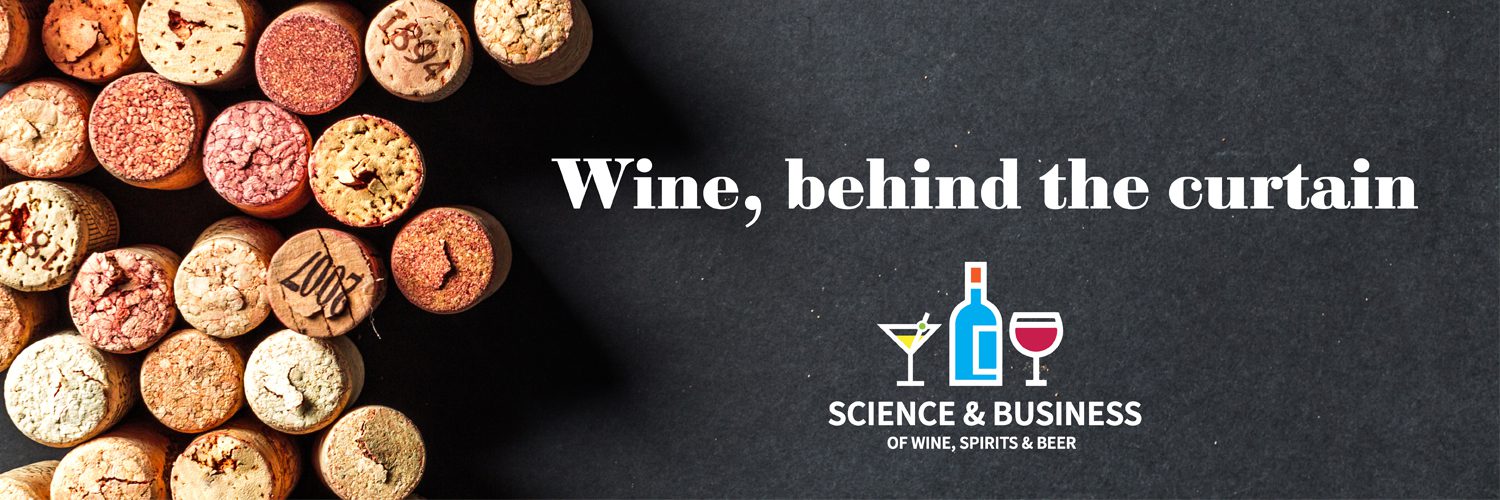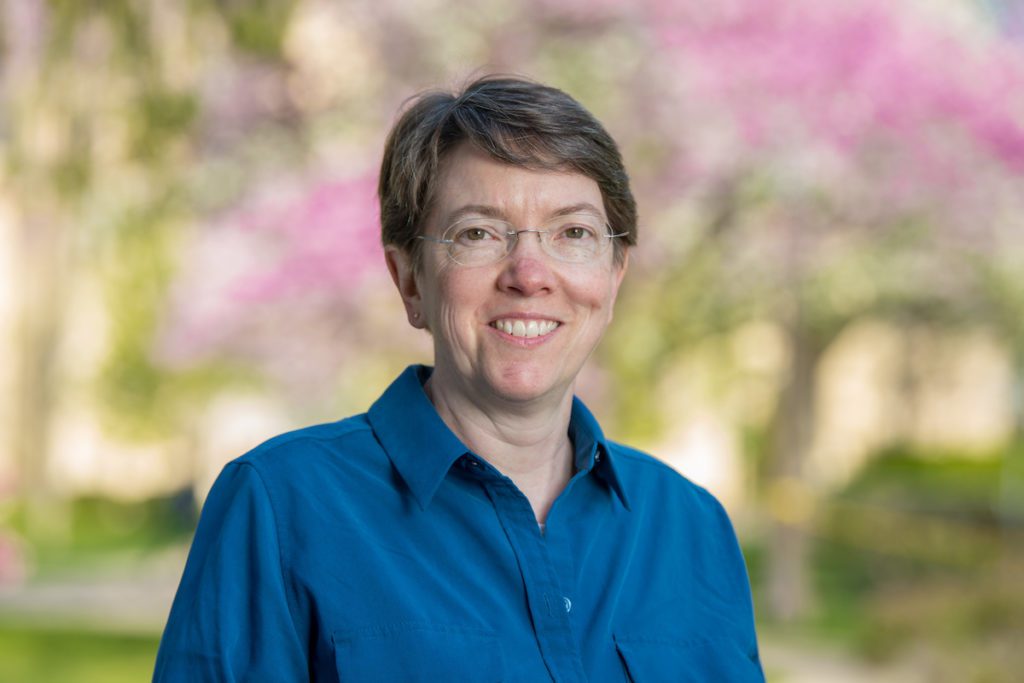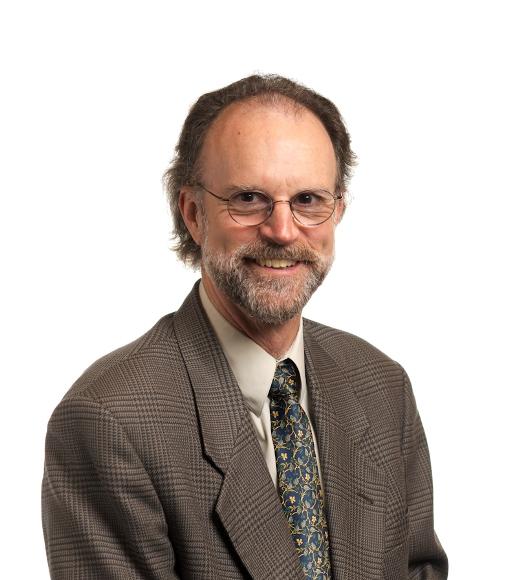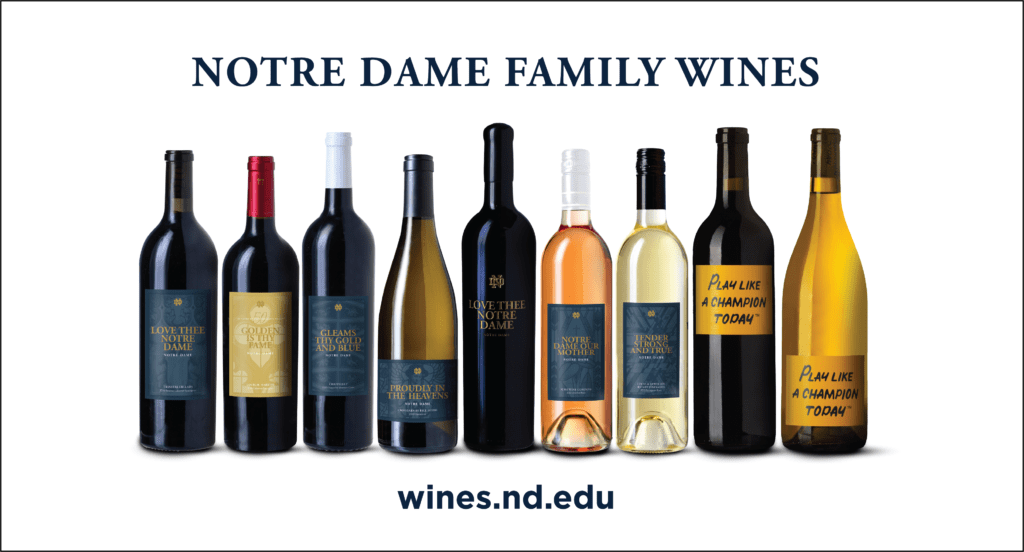Terroir: Wine Quality and Context

We all know where we come from can be an important part of who we are. The same is true for wine! The idea that all the factors that go into producing grapes and transforming them into wine, from climate to soil to elevation, are fundamental to the quality of the wine is know as terroir. This concept was so important to the ancient Greeks that they stamped their amphorae jars to show their location of origin. Join Notre Dame Professor Holly Goodson, a biochemist who teaches the science of fermentation and is an advisor to a commercial vineyard, in a discussion about the terroir of the great vineyards of the world with Andrew Waterhouse ‘77, the Director of the Robert Mondavi Institute for Wine & Food Science at UC-Davis, and world-renowned winemaker Paul Hobbs ‘75.
Meet the Faculty: Holly Goodson

Holly Goodson is a biochemist in the Department of Chemistry and Biochemistry at the University of Notre Dame. She is also a consulting biochemist for Ironhand Vineyard, a small boutique winery in the St. Joseph River Valley. She earned her undergraduate degree in molecular biology from Princeton University and her doctoral degree in biochemistry from Stanford University. She joined the Notre Dame faculty in 2000. Her lab is focused on addressing questions related to cell biology using a combination of biochemistry, molecular biology, quantitative microscopy, and computational models. She teaches the wine portion of the science of fermentation.
Meet the Faculty: Andrew Waterhouse '77

Andrew L. Waterhouse ’77 is a third generation Californian, but moved frequently while growing up, including some years abroad. He attended the University of Notre Dame where he earned a Bachelor of Science in Chemistry, and then UC Berkeley for his PhD in organic chemistry. In 1991, he moved to the Department of Viticulture and Enology at UC Davis where his research program delved into wine oxidation as well as various aspects of wine chemistry, with an emphasis on phenolic compounds. His graduate students and post-docs are winemakers, researchers and faculty across California and elsewhere around the globe. He is currently a Co-Editor in Chief of the Journal of the Science of Food and Agriculture and is Director of the Robert Mondavi Institute for Wine and Food Science at UC Davis.
Meet the Speaker: Paul Hobbs '75

Paul Hobbs ‘75 is a world-renowned winemaker. In 2013, Forbes Magazine referred to Hobbs as “The Steve Jobs of Wine”. He has been twice named “Wine Personality of the Year” by Robert Parker of The Wine Advocate. Over his 40+ year career, Hobbs has received more than ten 100-point scores across his portfolio—a rare feat that places him in the top echelon of the world’s winemakers. He graduated from Newfane in 1971, earned his BS in Chemistry from the University of Notre Dame in 1975, and MS in Viticulture & Enology from the University of California, Davis in 1978.
Regarded as an international visionary for his accomplishments in the vineyard and winery, Hobbs combines his childhood roots on the family farm in Western New York with an innovative scientific approach to refine the art of winemaking. He is recognized across the globe for breaking with tradition and forging new paths in the pursuit of excellence; both in stewardship of the land, and the crafting of wines that represent the purist concept of place – leading the way in the early 90’s as a pioneer of site-specific, vineyard designate wines. Robert Parker notes that “Paul Hobbs is like a good truffle-hunting dog when it comes to finding great vineyards.”
In 1979, he was appointed a member of the inaugural Opus One winemaking team joint venture between Robert Mondavi / Mouton Rothschild of Bordeaux.
Later, a first trip to Argentina in 1988 marked the beginning of what today has become a highly consequential South American winemaking career. Prominently featured in Ian Mount’s “The Vineyard at the End of the World: Maverick Winemakers and the Rebirth of Malbec,” Hobbs is recognized for his legendary status as the pioneer winemaker who played the leading role in launching the variety’s rise to fame.
Today, Hobbs is owner and vintner for eight wineries around the world: Paul Hobbs, Crossbarn, and HOBBS (California), Hillick & Hobbs (Finger Lakes, New York), Viña Cobos (Argentina), Crocus (Cahors, France), Yacoubian-Hobbs (Armenia), and Alvaredos-Hobbs (Galicia, Spain).
Paul Hobbs Winery - Our Story
In 1991, pioneering winemaker Paul Hobbs established his namesake winery in Sebastopol, California. The winery exemplifies his vision and dedication to sustainability and his on-going quest to refine the art of winemaking with minimal intervention, yet meticulous care.
“The true character of a site is only revealed through the work and determination of tending each vineyard with meticulous care and vinifying with minimalist winemaking techniques that fully express the terroir.” – Paul Hobbs
2022 Notre Dame Family Wines Collection

Celebrating wines from Notre Dame family, parents and friends.
Where Grapes Grow
Where do grapes grow and how does one plant and manage a top quality vineyard? What are the growing requirements of grapes? Andrew Waterhouse ’77, director of the Robert Mondavi Institute for Wine and Food Science at UC Davis walks us through the fundamentals.
Savor: Wine, Wildfire & Climate Change

In this offering from the Robert Mondavi Institute for Wine & Food Science, former Governor Jerry Brown and UC Davis Enologist Anita Oberholster discussed the effects of climate change on California agriculture, particularly the growing frequency of catastrophic wildfires, with a focus on grapes and wine.
Ask a Sommelier
There is an etiquette associated with enjoying wine at a restaurant. Are you in the know? Feel at easy in every situation with these easy-to-follow guidelines from Greg Tucker of Notre Dame Family Wines.
View the Event
Subscribe to the ThinkND podcast on Apple, Spotify, or Google.
Featured Speakers:
- Holly Goodson, Biochemist in the Department of Chemistry and Biochemistry at the University of Notre Dame, Consulting Biochemist for Ironhand Vineyard in the St. Joseph River Valley
- Andrew Waterhouse ‘77, Director of the Robert Mondavi Institute for Wine & Food Science at UC-Davis
- Paul Hobbs ’75, world-renowned winemaker
